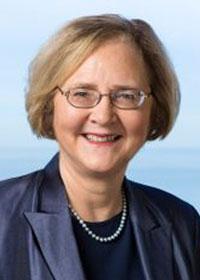When a cell divides, it is important that its chromosomes are copied correctly and in full, which keeps cancer and other diseases at bay. Elizabeth H. Blackburn, Ph.D., is an Australian-born molecular biologist and biochemist who discovered telomeres, the cap at the end of each chromosome, which protects it and has a particular DNA that keeps the chromosome from being broken down.
Blackburn partnered with Jack Szostak, Ph.D., to understand telomere function. They discovered that telomeres have a particular DNA and proved that this DNA prevents chromosomes from being broken down. In 1984, Blackburn and Carol Greider discovered telomerase, which produces the DNA specific to telomeres. Blackburn’s findings showed that telomerase can cause cancer cells to eliminate themselves, and that dampening the level of telomerase did not cause cells to run out but instead caused cells to become less cancerous, less malignant, and less metastatic. These findings have contributed to new anti-cancer therapies and show how the body itself prevents cancer.
Today, Blackburn is a professor in the Department of Biochemistry and Biophysics, and the Department of Microbiology and Immunology at the University of California, San Francisco (UCSF). Her most recent research includes investigating genetic composition and cellular functions of the telomeres and telomerase, and studies on the interactions of these cellular components and their roles in cancer and aging.
In 2009, Blackburn, Szostak and Greider were awarded the Nobel Prize for Physiology or Medicine.
To learn more about Dr. Blackburn, read her staff profile from UCSF.

